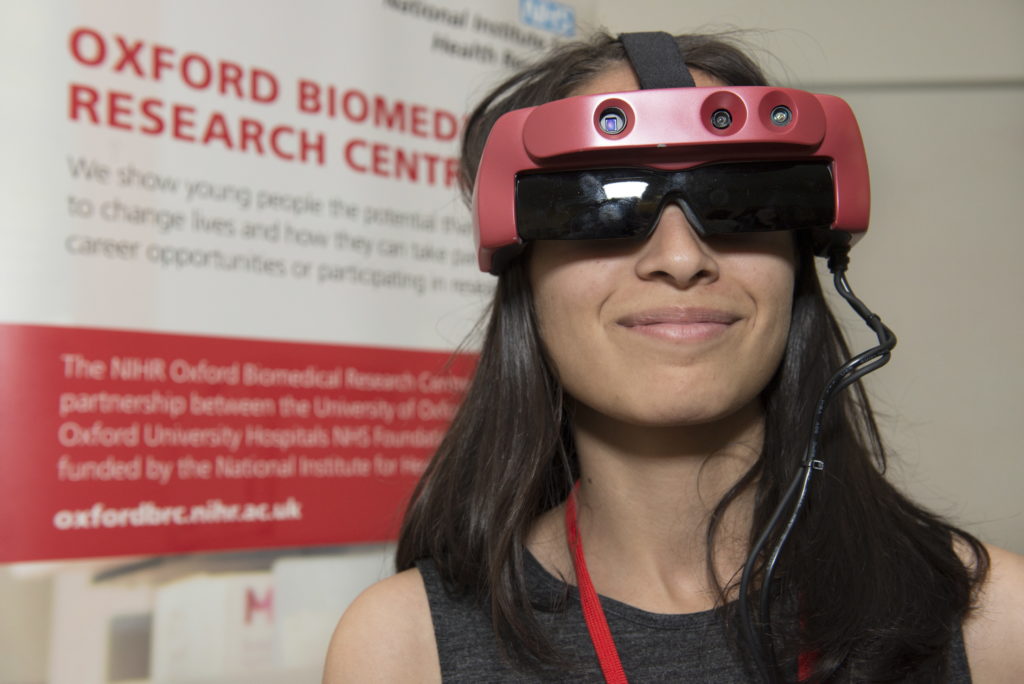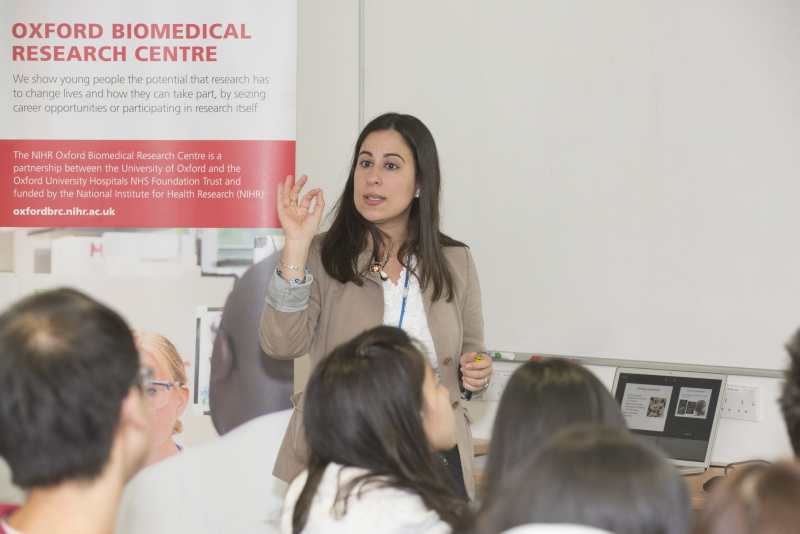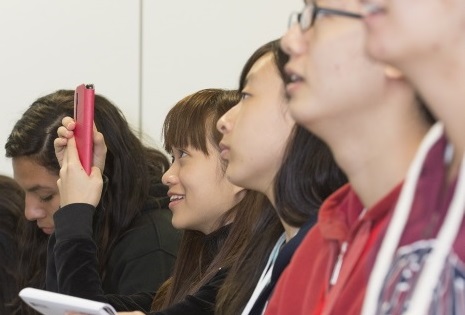Students pursuing a career in science and medicine visited Oxford’s John Radcliffe Hospital in an event supported by the NIHR Oxford Biomedical Research Centre (BRC).
A total 24 students aged 16 to 32 attended talks and interactive sessions on BRC-supported research by the University of Oxford on August 4.

India’s Rehmat Kang, 17, tried on ‘smart glasses’
It was part of the 58th London International Youth Science Forum, a two-week residential event which attracts more than 500 of the world’s leading young scientists from more than 65 countries.
The theme of this year’s programme, held at Imperial College London, is “Great Scientific Discoveries”.
Ex-LIYSF student Prof Christopher Kennard, head of the University’s Nuffield Department of Clinical Neurosciences (NDCN), talked about the history of neurology and its role in Oxford.
Dr Chris Harvey explained the importance of sleep and invited students to complete a questionnaire on whether they were a “morning or evening type”.
During a tour of NDCN neuropathology laboratory facilities Prof Olaf Ansorge showed brain sections under microscopes and Prof Margaret Esiri displayed brains donated for research.
Dr Joram Van Rheede then demonstrated “smart glasses” developed by University spinout company OxSight with partners including NDCN and John Radcliffe clinical staff.
The glasses use cameras and algorithms to detect and highlight objects, separating them from the background in real-time.
This allows people with even the lowest amount of sight to make better use of their vision in challenging everyday scenarios.

Dr Chrystalina Antoniades (above) spoke about Parkinson’s Disease and deep brain stimulation, a procedure where wires are implanted into the brain to transmit an electrical pulse to reduce some symptoms of Parkinson’s.
Among those who attended was Malaysian student Raphaille Tseng, 18, who said: “All of the sessions gave a fantastic insight into neuroscience and it was amazingly inspiring to see all the research currently being done.”
